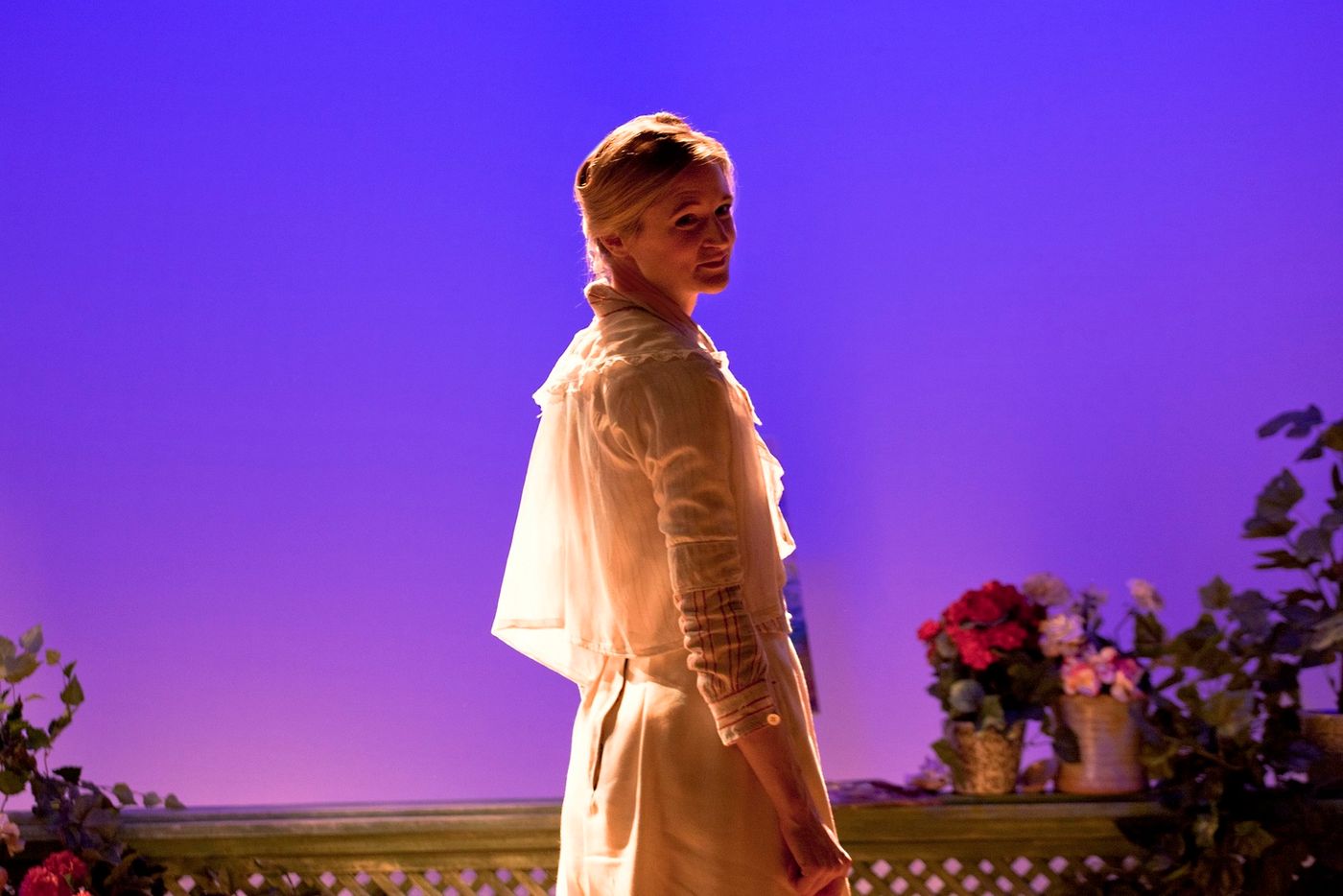Review: AGNES COLANDER, Theatre Royal Bath

![]()
"Only by forgetting all we've ever learned can we learn to live at all": wise words from a work that was, itself, forgotten.
Lost to the British Library and brought to life over 100 years later, Harley Granville Barker's Agnes Colander is an engaging and enlightening look at womanhood and liberation in early 1900s England from one of the Edwardian era's greatest writers.
Agnes is an artist living alone, a dangerous portrait of independence in a gallery of decorum. Directed with great detail by theatrical deity Trevor Nunn in the Ustinov Studio, the most intimate and diminutive of theatres, it feels more like sitting in on the seclusions of a film set than seeing a play, so evocative are Rob Jones's designs, Fergus O'Hare's sound, and Paul Pyant's ever-darkening lighting, and so privileged is our view to the intimacies of one woman's determinations and self-discovery.
Sometimes, it feels like we're seeing something before the final edit, and, fittingly, we are: Barker's found play is a draft, an unfinished version edited by playwright and director Richard Nelson, but, like her art, Agnes finds herself to be an unfinished woman - "only little bits of me are developed, and those bits aren't the best".
Betrayed and besmirched by her husband, Agnes is a bud that hasn't been allowed to blossom alone, and although her problems are habitually historic, her experience hits home. "I'm not a parasite!" she says, but, pitifully, she is: if this had been performed when written, it may have been provocative, but, in the present, it's piteous, because it's an experience many women are still all too familiar with.
As Agnes leaves with yet another lover, longing to find independence in all the wrong places - mostly, in men - it's yet another inevitably parasitic existence she's entering into; a past to be eternally repeated. Only the last lines, once her previous lover has tarred her "unwomanly" unveil the truth: "Am I?", she retorts, and yes, she is, and it was, and perhaps still is, a woman's most revolutionary act.
As Agnes, Naomi Frederick is fantastic: hysterical and histrionic she may be, but she's also humorous and hearty and human.
All the actors paint their characters with rich colour and chiaroscuro, from Sally Scott's strait-laced foil to Agnes - their painfully polite titter-off an inspired illustration of their opposition - to Freddy Carter's expert portrayal of a pitiful prig teetering on the verge of tears.
Matthew Flynn's Otho, the precarious painter Agnes elopes with, is a disquieting portrait of what decorum and propriety does to us, changing from a charming, if unconventional, lover to a loudly-chewing lout who's "proud to possess" his lady because it's what's expected; an expectation that erupts in the extreme in Act II.
As a lost play, it's not a perfect portrayal of love or life, and independence still seems to elude Agnes even at the end, but it is a frighteningly pertinent painting of that longed-for freedom, which, even now, still eludes many.
Maybe in finding this lost work, it's a reminder that it is time to - like Agnes - forget what we've learned, and learn to live.
Agnes Colander at Ustinov Studio, Theatre Royal Bath until 14 April
Photo credit: Simon Annand
Reader Reviews
Videos

